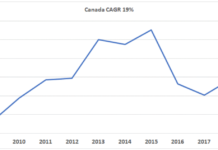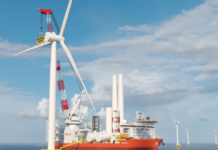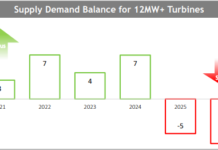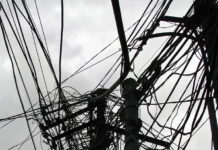Last week a jury found in favor of the United States government in a suit brought in 2013 by the Obama Administration against the Chinese wind turbine producer, Sinovel Wind Group (601558: Shanghai). Sinovel was found guilty of stealing technology from American Superconductor (AMSC: Nasdaq) that had supplied Sinovel with converter hardware and software solutions. Sinovel may have to pay hefty fines when the final sentencing step is completed in June 2018.
American Superconductor (now called AMSC) had already brought a private suit against Sinovel in China two years before the Justice Department filed its case. The China court dismissed the case for lack of evidence. An appeal by AMSC in a higher Chinese legal venue is still pending.
Every technology company runs a risk that customers will attempt an end-run around their product. However, in this case more skullduggery is alleged. AMSC had supplied Sinovel with a software application AMSC called Low Voltage Ride Through. Sinovel wanted to use the application in their wind turbines to help regulate the flow of electricity produced by Sinovel wind turbines into the power grid.
However, the relationship soured within a very short time when Sinovel reneged on its order. Sinovel has been charged with compromising AMSC employees from the get-go in order to steal the source code for the software application and then using the bootlegged software on over 1,000 turbines. AMSC executives are likely finding some vindication in the U.S. jury decision against Sinovel.
AMSC experienced a dramatic loss in share value when its claims against Sinovel were disclosed. In the midst of the Dot.com bubble AMSC traded over $700.00 per share in 2000, and in the days of the company’s foray into the China wind power market the shares soared again. The stock set another impressive high around $430.00 in late 2010, but quickly saw this value disappear as the stock plummeted to around $35.00 within a year.
Unfortunately, the stock has never recovered despite the company’s efforts to move on and find new inroads to the wind power market. In the twelve months ending September 2017, the company reported $63.3 million in total sales, resulting in an operating loss of $7.8 million. Management had to dip into the bank account to support operations to the tune of $13.8 million over the twelve months ending September 2017.
Low profitability appears to be AMSC’s enemy. Gross margin slid to 2% in the most recently reported quarter ending September 2017. However, direct costs had exceeded revenue in the previous quarter. During the three fiscal years 2015, 2016 and 2017, the gross profit margin has averaged 14.9%. The company must achieve much greater efficiency or drive sales to a substantially higher level to support operating expenses that averaged just over $43.0 million per year during those same fiscal years.
AMSC sells power electronics products and engineering services to wind power operators as well as electric utilities using wind power. The grid product portfolio was recently expanded with the acquisition of Infinia Technology, a provider of cryocoolers to the U.S. Navy and others using high temperature superconductors. Investors will get a first look at Infinia’s contribution to a full three months of sales and earnings when AMSC reports results from its fiscal third quarter ending December 2017. AMSC is using Infinia’s products in conjunction with the AMSC solution for Ship Protection Systems (SPS), allowing the company to capture more of the SPS business with the Navy and expand profits.
The company had $30.3 million in cash on the balance sheet at the end of September 2017, providing a runway of about two years at the current spending rate. The company last visited the capital market in May 2017, when 4.0 million shares of common stock were sold for $4.00 per share. Those investors have seen 30% pick-up in share value since the follow-on offering, some of which was delivered with the jury verdict against Sinovel. Shares of AMSC rose 12.4% on the news as the stock rose from a pre-announcement level of $5.07 to $5.70 in the first trading day following the development.
AMSC needs much more than a court room victory. Serious change must be made in AMSC operations to either right-size operations or drive revenue and efficiency higher. Indeed, the jury verdict may have accelerated the point at which investors will require AMSC to get on with its future as the verdict helps close the book on the nightmare customer relationship.
Debra Fiakas is the Managing Director of Crystal Equity Research, an alternative research resource on small capitalization companies in selected industries. Neither the author of the Small Cap Strategist web log, Crystal Equity Research nor its affiliates have a beneficial interest in the companies mentioned herein.








